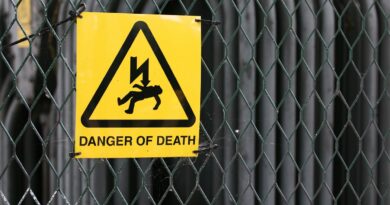Home Safety Matters: Essential Electrical Safety Audit Tips for Bhiwadi Residents
Introduction
Welcome to our comprehensive guide on essential electrical safety audit tips for Bhiwadi residents. At CDG Inspection we understand the importance of home safety and want to ensure that you have the necessary knowledge to protect your loved ones and property from electrical hazards. In this article, we will delve into the key aspects of conducting an electrical safety audit in your home, providing you with valuable insights and tips to maintain a safe living environment. Let’s get started!
Understanding the Importance of Electrical Safety
Electricity is an essential part of our daily lives, powering our homes and enabling us to perform various tasks. However, it also poses potential risks if not handled with caution. Electrical accidents can result in severe injuries, fires, or even fatalities. Therefore, prioritizing electrical safety is crucial for every homeowner.
Conducting an Electrical Safety Audit
1. Hiring a Qualified Electrician
To ensure a thorough and professional electrical safety audit, it is recommended to hire a qualified electrician who specializes in home inspections. A certified electrician possesses the necessary expertise to identify potential electrical hazards, assess the condition of your electrical system, and provide actionable recommendations.
2. Inspecting Electrical Panels and Wiring
During the audit, the electrician will carefully examine your electrical panels and wiring. They will look for any signs of wear, loose connections, or outdated components that may pose a safety risk. It is essential to address any issues promptly and replace faulty wiring or panels to prevent electrical failures or potential hazards.
3. Checking Grounding and Bonding
Proper grounding and bonding are essential for electrical safety. The electrician will inspect the grounding system to ensure it effectively channels electrical surges into the ground, minimizing the risk of electrical shocks and equipment damage. They will also examine the bonding connections to confirm the integrity of the electrical system.
4. Evaluating Electrical Appliances and Outlets
As part of the audit, the electrician will assess the condition of your electrical appliances and outlets. They will check for any damaged cords, exposed wires, or overheating issues. Outlets will be tested to ensure proper grounding and functionality. Any faulty appliances or outlets should be repaired or replaced promptly to avoid potential electrical accidents.
5. Testing GFCI and AFCI Protection
Ground Fault Circuit Interrupters (GFCIs) and Arc Fault Circuit Interrupters (AFCIs) are critical safety devices that protect against electrical shocks and fires, respectively. The electrician will test these devices to ensure they are functioning correctly. Faulty GFCIs or AFCIs should be replaced immediately.
6. Assessing Outdoor Electrical Systems
If you have outdoor electrical systems, such as lighting or irrigation systems, they need to be included in the safety audit. The electrician will inspect these systems for any signs of damage, ensure proper wiring and grounding, and recommend improvements if needed.
Best Practices for Electrical Safety
In addition to conducting regular safety audits, there are several best practices you can follow to enhance electrical safety in your home:
- Avoid Overloading Outlets: Do not plug multiple high-wattage appliances into the same outlet, as it can lead to overheating and potential fire hazards. Use power strips or extension cords with surge protectors when needed.
- Handle Cords with Care: Avoid tugging or yanking on electrical cords, as it can damage the insulation and expose wires. Ensure cords are properly tucked away and not placed under rugs or furniture where they can be damaged.
- Use Tamper-Resistant Outlets: Consider installing tamper-resistant outlets, especially if you have young children at home. These outlets have built-in mechanisms that prevent foreign objects from being inserted, reducing the risk of electrical shocks.
- Regularly Test Smoke Alarms: Smoke alarms play a vital role in early fire detection. Test them monthly and replace the batteries at least once a year. If your smoke alarms are more than ten years old, consider replacing them with newer models.
- Educate Your Family: Ensure that everyone in your household understands basic electrical safety practices. Teach them to avoid water contact with electrical devices, never touch electrical panels or exposed wires, and inform you immediately if they notice any electrical issues.
Conclusion
In conclusion, prioritizing electrical safety is of utmost importance for Bhiwadi residents. By conducting regular electrical safety audits and following best practices, you can significantly reduce the risk of electrical accidents and create a safer living environment for your family. Remember, when it comes to electrical safety, prevention is always better than dealing with the consequences of an accident. Stay vigilant, and don’t hesitate to seek professional assistance when needed.




